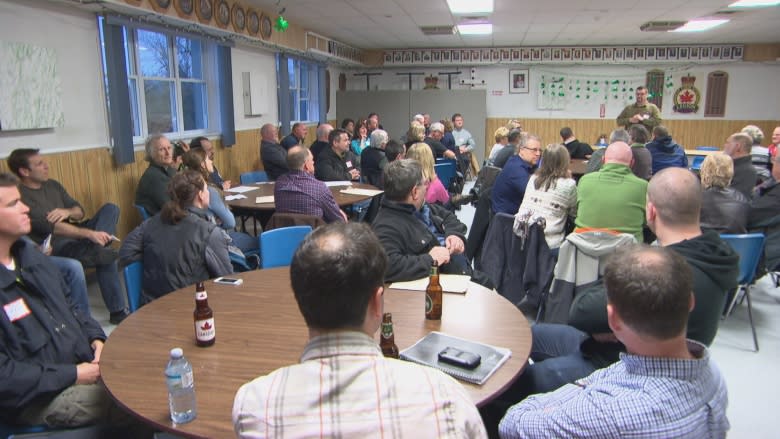Mississippi Mills residents sue NRC for $40M over contaminated water
A group of Mississippi Mills residents is suing the National Research Council for more than $40 million after residential wells were contaminated by chemicals originating from an NRC fire lab in their neighbourhood.
It's been almost a year since homeowners living near the fire safety testing facility on Ramsay Concession Road 8 in Mississippi Mills were told their water was contaminated and they should stop drinking it.
The water contained the chemicals often found in firefighting foams — chemicals that were tested in the NRC lab.
In July, the NRC confirmed perfluoroalkylated substances, or PFAS, found in several, nearby residential wells had originated from its lab. Health Canada notes that studies on animals show "high levels of PFAS have been linked with negative health effects ... including liver damage and impacts on neurological development."
Lawsuit claims NRC was negligent
Residents dealing with the contamination said they were having trouble getting answers from the NRC, so they hired Michael Hebert, an environmental lawyer with Beament, Hebert and Nicholson.
Hebert has since filed a statement of claim in what is expected to become a class-action lawsuit, one that could eventually include some 70 nearby residents.
The four plaintiffs in the case claim the NRC breached several environmental protection laws, was negligent in the use, handling, application, storage and disposal of contaminants and is "strictly liable for the escape" of those contaminants.
The claim calls for the NRC to "completely eliminate all traces of contaminants and that the defendant must pay the cost of doing so."
The $40 million the plaintiffs request in damages is for "remediation costs, engineering and other professional costs, financing costs and diminution in value of the properties of the plaintiffs and the other class members."
The claim also includes $2 million in punitive damages.
None of the claims in the class-action have been tested in court.
NRC yet to file statement of defence
"We had a fair number of people who signed up early on in the process," said Hebert. "We decided the only way to tackle the problem was to proceed by way of class-action."
Hebert said his office is waiting for the federal government to file its statement of defence and provide the many documents, studies and test results his clients and his firm have requested.
"There's so many reports that were done that are missing. They have guards guarding the facility. It's quite secretive — it has been to date anyway," said Hebert, who added that his firm had asked to take samples when the NRC was carrying out a soil remediation program on its property, but it was not allowed.
A spokesperson with the NRC told CBC News they've been "informed of legal action surrounding the National Fire Research Laboratory. We are in the process of reviewing the claim and will be responding at the appropriate time."
Residents to get bottled water until at least 2018
But Hebert said lawyers from the federal justice department are representing the NRC and have asked for an extension to file a statement of defence.
Last month, the National Research Council said it will continue sampling and testing drinking water, maintaining water filtration systems and providing bottled water to neighbouring residents until the fall of 2018 at the earliest.
"I know there was a significant period of time that this has been on-going and the people were only notified and preventative steps taken as of last December and this facility has been operating since about 1981," said Hebert.
"There's so many substances out there that aren't even accounted for. It's an important case."



